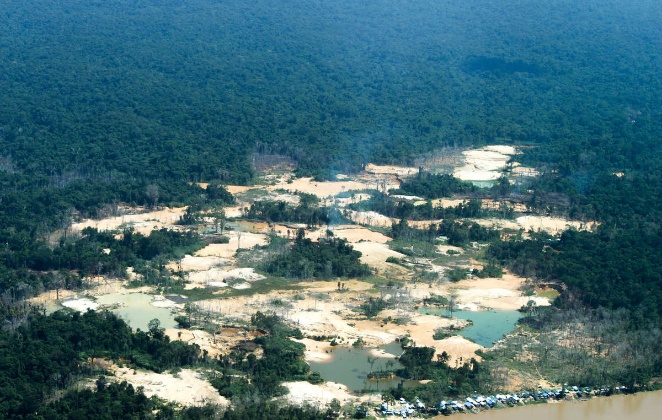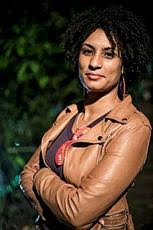This month, amongst other issues, we report on continuing concerns regarding the rights of indigenous peoples in Paraguay, Ecuador and Brazil. The killings of human rights defenders and community leaders and women’s rights in Colombia, threats to a journalist and prison violence in Brazil are also included. There is an urgent action relating to Paraguay and petitions regarding a case in Brazil and Amazonian women in Ecuador. There is also some welcome news relating to a report on Venezuela and positive news regarding Paraguay and Uruguay.
BRAZIL
An IACHR press release dated 1 July reports that, on June 9, The Intercept Brasil started publishing a series of leaks denouncing alleged irregularities in the so-called “Anti-Corruption Operation, Car Wash.” Immediately after the disclosure, journalist Glenn Greenwald became the target of offensive remarks, defamation, and death threats. The Special Rapporteur for Freedom of Expression and the Special Rapporteur on the Promotion and Protection of the Right to Freedom of Opinion and Expression express their concern over the threats, offensive remarks made by authorities and the intimidation against the journalist and his family, after the dissemination of information and press reports of public interest.
Survival International reported on 1 July that up to 10,000 gold miners have invaded Yanomami lands in northern Brazil, spreading malaria in the region and polluting many of the rivers with mercury.

Although most Yanomami are in contact with non-indigenous society, one uncontacted group is known to live in the area being invaded, and authorities are investigating signs of up to six other uncontacted communities living there.
The massive influx has been blamed by local indigenous leaders for the deaths of four children already. They say the miners are building settlements and airstrips, emboldened by President Bolsonaro’s support for land invaders, and constant attacks on indigenous people.
One of the many illegal gold mining sites in the Yanomami territory
Some mining camps are just a few miles from uncontacted Yanomami. The Yanomami association Hutukara estimates the number of miners at up to 10,000. They also report devastation to the fish and game they rely on for their livelihood.
According to the Global Witness Report, Enemies of the State? How governments and business silence land and environmental defenders; published in July, there were at least twenty environmental activists murdered in Brazil in 2018, therefore Brazil has the fourth highest number of such crimes in the world.

Marielle Franco paid the ultimate price for defending human rights. On March 12, 2019, two people were arrested and accused of having participated in the killing of this human rights defender and city councillor, murdered on March 14, 2018. However, the intellectual authors, other potential facilitators, and the motivation for the crime have still not been identified.
There is an online petition targeting the Governor of Rio de Janeiro and the Prosecutor, both in charge of the investigations opened on the case. You can access it in English here. A further petition demanding a full, independent investigation into her murder addressed to the Brazilian president, Jair Bolsonaro can be accessed here.
The New York Times reported on 29 July that a fight between rival gangs in a prison in northern Brazil left at least 57 inmates dead, including at least 16 who were decapitated, according to prison officials. The clash in Pará State was the latest deadly outbreak of violence in Brazil’s overcrowded and riot-prone prisons, which have seen an increase in population in recent years without investment to match.
VENEZUELA
Along with 15 other leading human rights organisations, Amnesty welcomed the “landmark” report of the UN High Commissioner for Human Rights, Michelle Bachelet, on the human rights situation in Venezuela. In response to the “grave findings” in the report, and the absence of any fundamental improvement in the situation, they urged the Human Rights Council to adopt a Commission of Inquiry or similar mechanism in September to reinforce the efforts of the High Commissioner and other actors. Amnesty’s oral statement to the Council on Venezuela is here.
COLOMBIA
Widespread demonstrations against the mass killings of social leaders in Colombia were held on 26 July. When President Duque attempted to join one, he was repelled with cries of ‘murderer’. Within 24 hours two social leaders were murdered.
The President of the JEP (Special Jurisdiction for Peace) has complained that her budget has been cut from 90 million pesos in 2019 to 67 million in 2020. As part of the Peace Accord signed with the FARC in 2016, 800,000 victims of the civil war have signed up to the JEP for justice and reparation. This latest round in the government’s campaign against the JEP follows President Duque’s 10 months of stalling to sign a bill setting out its legal status, which he finally signed in June. The JEP needs strengthening, not weakening.
The UN’s Committee on the Elimination of Discrimination against Women (CEDAW) found that Colombia was very far from implementing its laws and policies on discrimination against women. ‘The Committee is further concerned about indications that threats and violence, including sexual violence, against women human rights defenders have increased considerably in the period following the signing of the agreement and that the most vulnerable groups of women, in particular Colombian women of African descent, indigenous, rural, lesbian, bisexual and transgender women and women with disabilities, continue to suffer serious violations of their rights without access to the protection of the State or to justice.’
Members of the UN’s Security council (co-led by Peru and the UK) reported on their visit to Colombia in July. They expressed serious concern at the continued killings of social and community leaders and former FARC-EP members. They underscored the need for the Action Plan for the Protection of Social and Community Leaders, Human Rights Defenders and Journalists to translate into concrete results in preventing attacks and bringing those responsible to justice. The UN’s Verification Mission was extended for a further year.
PARAGUAY
Good news! The Prosecutor’s Office in Paraguay has begun an investigation into the March attacks against the Ysati indigenous community “3 de Julio”, the subject of an earlier Urgent Action. The Paraguayan Institute for Indigenous Affairs has provided the community with humanitarian assistance, reissued the identity documents the community lost during the attack, and filed a formal complaint before the Public Prosecutor’s Office for the alleged misuse of the criminal justice system by a state prosecutor against Ava Guaraní indigenous communities. Many thanks to all those who sent appeals.
However, another Indigenous community, the Tekoha Sauce, are once again at risk of eviction from their ancestral territory due to legal action being taken against them by the Itaipú Binational (Paraguay-Brazil) Hydroelectric Plant. Both international human rights standards and the Paraguayan Constitution protect Indigenous peoples from eviction from their ancestral territories without their free, prior and informed consent. Please support this Urgent Action here.
ECUADOR
On 25 July, Graham called on the Deputy Head of Mission at the Ecuadorian Embassy, Leopoldo Rovayo to discuss Amnesty’s campaign in support of the Amazonian Women. This was a constructive meeting. Rovayo said that since President Lenin Moreno took office, there had been greater emphasis on respecting public freedoms and freedom of expression. The Embassy was receiving a steady flow of copies of letters to the Attorney General sent by Amnesty groups, members and supporters in the UK; and had forwarded these to the Foreign Ministry in Quito. He undertook to report our meeting to the authorities in Ecuador.
Meanwhile, our campaign continues with a focus on Margoth Escobar. It is now 9 months since her house was burned down, destroying all her belongings. The petition to the Attorney General has reached around 100,000 signatures and will be delivered in late August or early September. Please share our Facebook post here.
URUGUAY
The UN Human Rights Council has completed its Universal Periodic Review of Uruguay. In its public statement, Amnesty welcomed Uruguay’s sustained engagement with the process and its acceptance of all the recommendations. It emphasised the importance of following the recommendations on the LGTBI population; impunity and justice for the victims of enforced disappearances; detention conditions; and women’s and girls’ rights.
South America Team – Richard Crosfield (Colombia, Argentina), David Palmer (Brazil) and Graham Minter (rest of South America).
And please don’t forget that you can follow us on Twitter at https://twitter.com/AIUKSthAmerica and our Facebook page https://www.facebook.com/amnestyinternationaluksouthamerica/